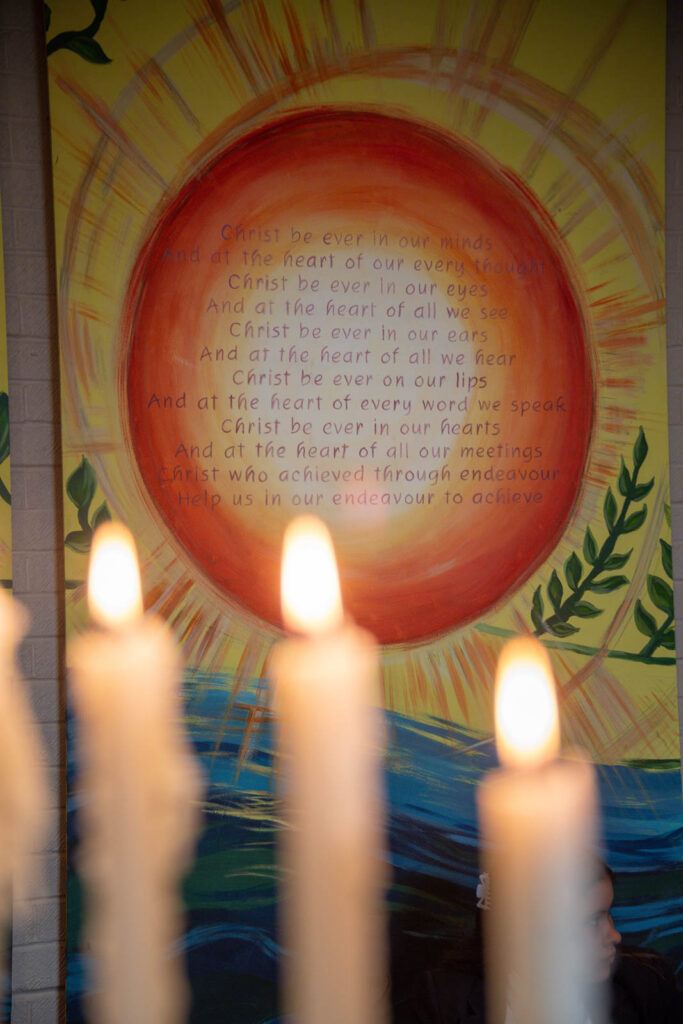Good luck to all pupils and students who are taking their exams. See your teacher if you need any support.
Good luck to all pupils and students who are taking their exams. See your teacher if you need any support.
Home » Curriculum

Our curriculum defines the purpose of our school and the journey we want our pupils and students to take. At Archbishop Ilsley Catholic School we believe that all pupils and students are able to become successful citizens with excellent academic success and the ability to be influential yet kind and compassionate citizens; our saints of the 21st century, dedicated to and called to a life of service to self, God and others.
We believe that this success comes from pupils being experts in the disciplines that they study. Their expertise will be achieved through our high quality curriculum, our classroom pedagogy, and the teaching of deep knowledge by highly skilled and knowledgeable subject experts. Students will benefit from quality first teaching in every classroom, every lesson, every day.
Our curriculum approach recognises that the acquisition of skills and knowledge go hand-in-hand and will ultimately prepare all pupils for their next steps through to Key Stage 4, Key Stage 5 and beyond. Our curriculum intent ensures that our curriculum framework of cognitive education is planned to enable pupils to think independently and contribute positively to society and the wider world. Our pupils will become:
Ensuring that our curriculum is enriched by the teachings of the Catholic church and led by the Jesuit Virtues.
The National Curriculum is the basis for all taught content at KS3 (Years 7-9) ensuring our pupils benefit from a broad and balanced approach whilst ensuring that they are taught the knowledge entitlement decided upon by our subject specialists. Pupils have a two week timetable; each day consists of five lessons of sixty minutes each.
English (6), Mathematics (8), Science (6), Religious Studies (5), Create (Art, Computing, Design & Technology and Food studies) (8), Enquire (English, Geography, History and Humanities) (8), Modern Foreign Languages (3), Music (2), Physical Education (4).
English (7), Mathematics (7), Science (6), Religious Studies (5), Art (2), Business Studies & Computing and IT (2), Design & Technology (4), Geography (4), History (4), Modern Foreign Languages (4), Music (1), Physical Education (4).
English (8), Mathematics (8), Science (6), Religious Studies (5), Art (2), Business Studies & Computing and IT & Health & Social Care (2), Design & Technology (3), Geography (3), History (3), Modern Foreign Languages (4), Music (2), Physical Education (4).
The curriculum for every department emphasises the development and securing of deep knowledge alongside the development of skills. Pupils will be introduced to and understand, theories and principles that have influenced, continue to influence and will influence in the future, the world in which they live. They will be prepared to fully engage in academic discussion about their learning. Teachers foster a love of learning and a desire to achieve; this begins with each subject’s own driving intent leading to the sequencing of topics taught.
Homework will be completed by pupils as a way of aiding knowledge recall and training pupils long-term memory recall and independent study skills.
Pupils will be set homework. Please ask your child(ren) what they are working on; ask them questions about the content, ask them about the things they did in class that day. Encourage them also to read each night for about 20 minutes. Talking about their learning and reading each evening will have a profound effect upon their progress. If your child is able to recall lesson content and use it in their next lesson and in their quizzes and assessments, it is likely that your child will do really well as they progress through the year.
In Key Stage 4, the core curriculum for all includes RS, English, Mathematics, Science and PE. In addition, a wide range of optional subjects are offered to complement the core curriculum. Pupils will study the core and up to four option subjects from the following:
Core
English (7), Mathematics (7), Science (9), Religious Studies (5), Core Physical Education (2).
Options (5 periods)
Art, Business Studies, Computing, Design & Technology, Food Studies, French, Geography, Health and Social Care, History, ICT (imedia), Media Studies, Music, Physical Education, Spanish, Study Support, Triple Science.
In Key Stage 5, the Sixth Form students are required to follow a suitable 16-19 study programme. Study programmes are designed around students, their targets and ambitions. Students must study three subjects as their main programme of study; they should then choose either the Extended Project Qualification or Core Mathematics as their enrichment subject. Other qualification hours include CoRE and GCSE Maths and English retake classes for all students who have not achieved a grade 4 or above.
Options (10 hours per subject)
Art, Biology, Business Studies, Chemistry, Computing/IT, Criminology, English Literature, Environmental Science, French, Geography, Health and Social Care (single award), History, ICT, Mathematics (and Further Mathematics), Media Studies, Physics, Politics, Product Design, Psychology, Sociology, Spanish, Sport, Ethics, Philosophy and Theology.
Enrichment (2 hours per qualification)
Core Mathematics, Extended Project Qualification, CoRE.
If a student is resitting GCSE Mathematics they will receive 4 hours of lessons per week.
If a student is resitting GCSE English Language they will receive 3 hours of lessons per week.